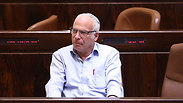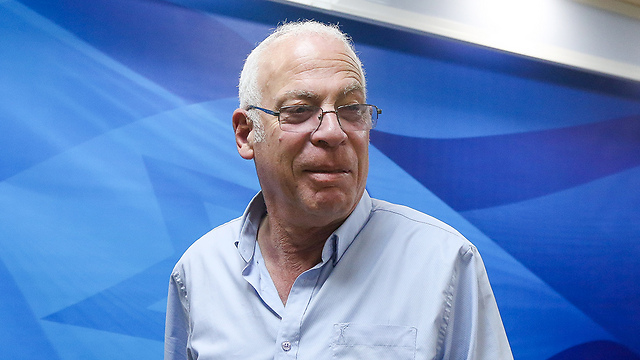
Uri Ariel
צילום: גיל יוחנן
Comptroller: Minister Ariel invested money earmarked for periphery in central Israel
Only 39% of the NIS 51 million allocated to increasing construction and lowering housing prices in the periphery got to the Negev and the Galilee, while 43% went to well-established cities like Modi'in, Tel Aviv and Raanana; comptroller: 'Minister Ariel allowed close associates to make decisions based on personal interests.'
Millions of shekels earmarked for developing and bolstering Israel's geographic and social periphery were instead invested in housing projects in central Israel, State Comptroller Yosef Shapira determined in a report released on Tuesday.
The comptroller, who examined the Construction Ministry's conduct from 2013-2015 under Minister Uri Ariel (Bayit Yehudi), found that Ariel appointed close associates who share his political and ideological interests to key positions in the ministry and allowed them to interfere in the implementation of a government plan to develop the periphery.
In September 2013, the housing cabinet passed a Strategic Plan to Encourage and Bolster Settlements, whose main objective was to "use all available measures to lower housing prices and make the development of Israel's geographic and social periphery into a national goal."
According to the comptroller, Ariel's close associates excluded the ministry's professional staff—including the director general and legal advisor—from discussions on the plan, making important decisions without the professional input of the ministry's employees.
"Ariel allowed a situation in which strategic decisions were made not by the ministry's professionals, but by interest groups seeking to promote their own affairs on both the political and business levels," the comptroller wrote.
"Minister Ariel's decisions to involve his political associates in (the plan's implementation) ... raises concern he acted to ensure that decision to provide budgetary support to settlement groups is entrusted to those who have close ties to the minister's political and ideological activities and who have significant and direct ties to some of those groups."
According to the comptroller's report, the Construction Ministry and the Settlement Division set the criteria for financial aid eligibility in a way that gave projects in well-established communities equal status to that of projects in disenfranchised communities.
The Housing Ministry transferred the entire budget allocated for the plan, some NIS 51 million, to the Settlement Division, the comptroller found.
And so, settlement groups in Tel Aviv with ties to one Ariel associate received NIS 1.129 million from the Construction Ministry and the Settlement Division. Groups in another city with ties to another interested party received NIS 704,000 in aid money.
One of the settlement groups established by an Ariel associate received NIS 86,000 in aid money even though it did not meet the necessary criteria. Another group headed by an Ariel associate was allocated NIS 317,000, but this request was denied by the Construction Ministry's Neighborhoods Rehabilitation Department because the group did not meet the basic criteria.
All in all, only 39 percent of the budget allocated for the government plan to encourage settlement in the periphery went to projects in the Negev and Galilee regions, while 43 percent were invested in central Israel.
Settlement groups from low socioeconomic status communities received the least amount of aid—some NIS 4 million. Meanwhile, groups from high socioeconomic status communities like Modi'in, Raanana and Tel Aviv received twice as much, some NIS 10.5 million, most of which were invested in the cities' established neighborhoods.
Shapira called on the attorney general to investigate the ministry's conduct in giving funds earmarked for the periphery to settlement groups in cities with a high socioeconomic status in the center of Israel, which according to the comptroller were not eligible for the money.
Ariel's office said in response to the report that the minister "respects the state comptroller's conclusions and has already instructed the relevant bodies to act in accordance with the comptroller's recommendations.
"It should be emphasized that the comptroller did not recommend the attorney general to investigate Minister Ariel's conduct, but rather the conduct of certain settlement groups, which the minister had no hand in their budgeting.
"All gatekeepers, legal advisors, and accountants in the different government ministries adopted and authorized the plan and played part in its writing, determining the criteria for funding, and its implementation."
(Translated and edited by Yaara Shalom)











